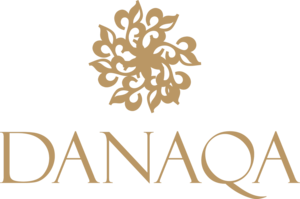The 'Afri-Present' panel
Last week Danaqa attended the Fashion Africa Guide conference, hosted by FAG founder Jacqueline Shaw. As well as the annual conference, FAG also offer online Fashion Africa Business workshops, a Fashion Africa Trade Expo and Fashion Africa Sourcing trips that are launching in 2017. Jacqueline is also the author of ‘Fashion Africa’ showcasing over 45 of Africa’s well-known fashion designers and companies.
Jacqueline Shaw's book
“The ethical considerations behind the fashion industry in Africa right now are really its biggest strength” –Claire Lynch
The day provided a fascinating insight into current African fashion businesses and best-model practices. Discussing the textile and leather industry in Ethiopia we learnt from the company, Responsify, that the Ethiopian government are implementing a ban on the export of raw materials in order to focus on value added export as well as banning the second hand clothing industry. By prioritising the textile and leather industry, 200,000 Ethiopians can be employed each year due to the growing industry. Developing the industry from scratch provides the opportunity to implement sustainable production practices and ethical working conditions, creating the possibility to make a positive change.
Mantis World, based in Arusha Tanzania, are another company paving the way for ethical and sustainable manufacturing, with a factory producing blank apparel for the printed market. As well as achieving various industry certifications such as GOTS and SAI they are focused on women’s empowerment through the creation of garment industry jobs that do not require educational qualifications or previous work experience.
Information on organic cotton from the Mantis World website
Mark Stephenson from Sandstorm Kenya presented a very inspiring story of his brand’s evolution, from a ‘safari-style’ product aimed at expats and the export market to a ‘Kenya’s first choice for timeless and functional bags,’ achieving $1 million in sales in the last 12 months. The brand now presents a heritage story instead of a lifestyle story, with nearly 100% of the bag being manufactured in their Nairobi based factory, for example most of the hardware for the bags is cast from recycled brass by local craftsmen. They have also reinvented their retail concept to accommodate for the sophisticated Kenyan consumer market.
Sandstorm Kenya on Instagram
“You’re not going to help, you’re going to learn and collaborate.” – Simon Ferrigno
Other impactful points made throughout the day were the need for cultural understanding of who you are working with and the value of skills already present, as well as those that need to be developed. Manufacturing focus should be on developing skills as an alternative to keeping the skills set low and simply producing low-cost goods, which echoes the need for value-added export products.
It was a truly inspiring and encouraging day to hear positive stories of responsible manufacturing, local creativity and business innovation from such a rich and diverse continent. Thank you Fashion Africa Guide!





